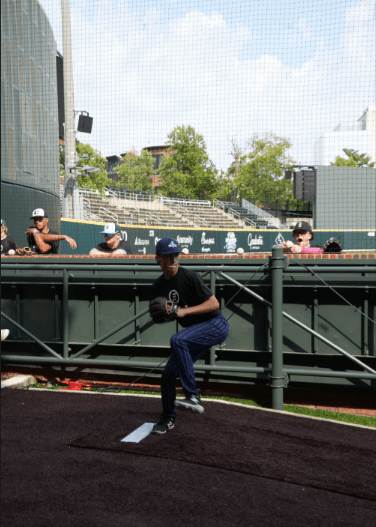I have said this before and I will continue to say it “90% of all recruiting (outside of NCAA D1) occurs when a coach or student-athlete contacts the College or University.” Having said that, I would be willing to bet that 95% of Student-Athletes out there will be emailing a coach by the time they graduate from high school. This will be a two-part blog. This blog will be about what NOT to do, and part-two will be about what you should do!
DO NOT Have Mom or Dad Email The Coach For You
Believe it or not it can be common for parents to help their student-athletes out. They’re better at grammar and writing but hearing from mom or dad is a red flag to coaches. It tells a College Coach mom or dad my be a helicopter parent and be around and involved more than they should. Coaches want players who can speak for themselves, and they want players who will accomplish tasks without the help of others. Parents, your biggest involvement should be checking grammar and punctuation and giving suggestions on how to market themselves better.
DO NOT Use an Inappropriate Email
I have received email from all kids of email addresses, some good some awful. For a coach that has never met you, the first thing they see is your email address, so act as if this is your FIRST IMPRESSION.Some coaches may not even open your email if it is some crazy weird email address. Your email address should not be “ideserveafullride” or “bigstick247” both of which I have seen! First impressions matter and coaches will delete emails from unprofessional email addresses.
Bad Addresses: ideserveafullride@gmail.com, bigsticks247@gmail.com, alldayeveryday@gmail.com
DO NOT Address A Coach By His First Name
While a lot of coaches out there go on a first name basis for the players and coaches on their staff, myself included, I highly advise against addressing an email to the coaches first name. Coaches don’t know you from atom, so when you reach out to them, they are expecting some level of respect. Don’t use their nickname! I have played and coached under Head Coaches that go by “Sully” or “Strom” or “7” or “11,” but I would never address an email to their nicknames or even their first names. This will show a lack of respect. Address coaches in emails like you would address your teacher in class just substitute “Mr. or Mrs” with “Coach.”
DO NOT Misspell Anything In Your Email
Mom and Dad, this is the only place, I will let you interject. Before they send an email, please revise it and make sure all the grammar and spelling is correct. The last thing you want to do in an email to a college coach is tell them you are interested in their school for the academics and you have something misspelled. Key items to NEVER MISSPELL: Coach’s Last name, College/University Name, City school is located in etc. Take pride in the emails you send and take the time to read and re read your emails before hitting send.
DO NOT Send A Mass Email
I have received thousands of emails from prospective student-athletes, and the first way to notice if it is a mass email is if the email is addressed “Dear Coach.” Coaches want to know you have taken the time to address each email personally and you have included a few facts you have researched about the school. It’s easy for coaches to tell if he’s received a mass email, and those are the emails that nothing gets read past “Dear Coach.” Take the time to find the coaches name, mention them having the major you want to study and mention a few good things you like about their program. If I see an email without these things in them, I almost always don’t read past the introduction. If you want Coach to make you a priority in his recruiting process, then you need to make him and his school a priority when you are emailing him.
DO NOT Send A Long Email or Include Non-Pertinent Information Coaches receive A LOT of emails! Keep this in mind when you are sending them emails. You don’t want them to be stuck reading an email that takes 10 minutes to read through. They won’t read the whole email, I promise. Coaches want their information and they want it quick, so keep your email read times to about 3 minutes. Don’t include information about “playing baseball since you were 6” or “my dream has always been to play college baseball.” Every player who emails a coach has been playing since they were 6, and, if you are emailing them, they hope you have aspirations of playing college baseball. Long emails will only be scanned by a coach, and they will just be looking for the most important information.

